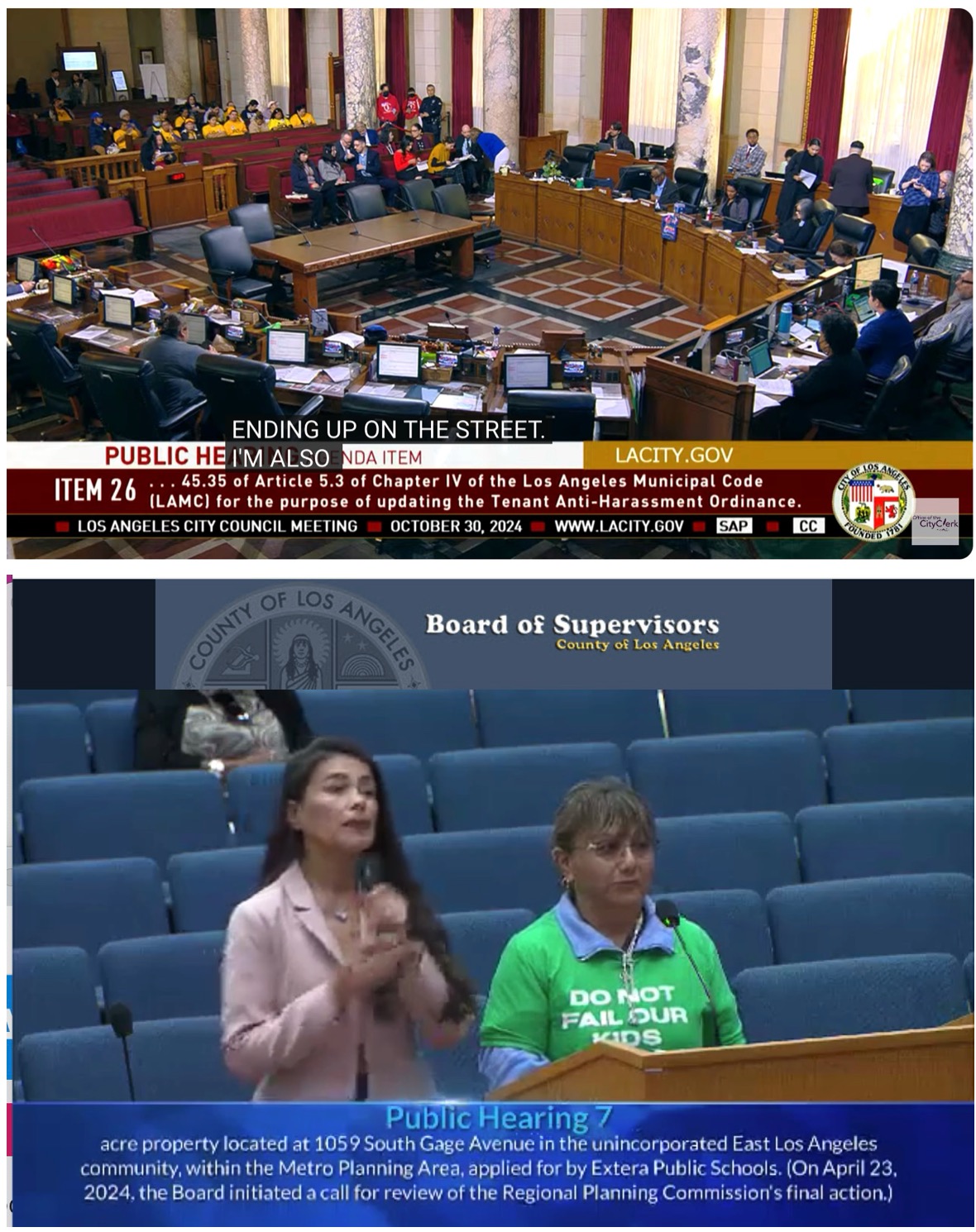Comments
ERIC PREVEN'S NOTEBOOK - Years ago, when the term "realignment" referred to California’s jail population, an editorialist at the Los Angeles Times called out the L.A. County Supervisors for skirting public accountability. This criticism stemmed from their decision to hold a closed-door meeting with then-Governor Jerry Brown. At the time, the Board leaned on county counsel’s advice to bypass the Brown Act, dismissing what they saw as an “inconvenient public.” Fast forward to today, and the Board’s tactics to avoid public scrutiny have only grown more elaborate.
The L.A. County Board of Supervisors oversees thousands of agenda items annually, a volume that makes it challenging for even the most diligent members of the public to stay informed. Despite this, the Board has taken deliberate steps to shrink its public footprint further. Meeting cancellations have surged this year, with April 2, July 2, August 20, August 27, September 3, November 12, and November 19 all wiped from the calendar. Board Chair Lindsey P. Horvath pledged to add more meetings, but her promises have proven hollow. This erosion of public access denies the “watchful electorate” critical opportunities to hold their leaders accountable.
Consider the recent $205 million purchase of the 52-story Gas Company Tower—a decision emblematic of the Board’s detachment from its constituents. Shielded by confidentiality agreements and made without public input, the acquisition prioritizes a fortress of glass and steel over revitalizing community-centered spaces near Gloria Molina Grand Park. Supervisor Janice Hahn, the lone dissenting voice, summed up the public’s frustration: “It is a soulless building... That isn’t what County Government should look like.” This decision underscores a broader trend of governance insulated from the people it is supposed to serve.
Adding insult to injury, the Board continues to deny the public access to critical information. For instance, it commissioned a report from Covington & Burling LLP—a law firm with a clear partisan bent—using public funds. Yet, the costs and contents of this report remain hidden from the taxpayers who financed it. Does anyone truly believe this lack of transparency is appropriate?
Measure G, touted as a transformative reform, is little more than window dressing. Expanding the Board to nine members may exacerbate inefficiencies without addressing the core issue: a fundamental lack of transparency. Adding voices won’t necessarily lead to more accountability, especially when the agenda remains overstuffed and public commenters must endure hours-long waits for a fleeting moment to speak.
Still, there is a silver lining: Measure G’s redistricting changes won’t take effect until 2032. This gives Angelenos eight years to demand meaningful reform. Simple measures, such as a transparent, digital sign-up system, could streamline public participation and restore faith in the process. Imagine a tool that allows residents to register to speak, view agenda items in advance, and see a real-time queue of speakers. Such changes could make the Supervisors more responsive and rebuild public trust.
Lindsey Horvath and her colleagues face a choice: embrace genuine openness or continue tightening the doors on the people they serve. The inconvenient public isn’t going away. The Supervisors must rise to the occasion—the stakes couldn’t be higher.
Make the Times Great Again
During the Trump era, many journalists abandoned objectivity in favor of "moral clarity," positioning themselves as defenders of democracy rather than unbiased observers. This shift, while well-intentioned, eroded public trust in the media. Yascha Mounk, writing in Persuasion, argued that prioritizing partisan goals over truth creates “elite misinformation,” alienating audiences and undermining accountability. The Los Angeles Times—under managing editor Shelby Grad—has exemplified this decline, failing to scrutinize local power structures and enabling corruption to fester.
To be fair, the blame doesn’t rest solely with Mr. Grad. He’s a decent fellow, laboring in the engine room of a sinking vessel. Yet, his editorial decisions illustrate a troubling trend. When Rebecca Ellis reported that Measure G had passed, her article omitted critical context, including a string of board meeting cancellations that disenfranchised voters. The next day, Grad’s editorial response offered quasi-historical framing that baffled Angelenos, ignoring the reality: Measure G’s passage was a last-minute power play to exploit a high-turnout presidential election.
Consider the Times’ refusal to investigate systemic issues like Job Order Contracting fraud, a procurement mechanism rife with abuse. Or its silence on Mark Ridley-Thomas’ misuse of regional planning funds to bolster his son’s political ambitions—a story suppressed years before his indictment. Investigative efforts, such as Paul Pringle’s reporting on Ridley-Thomas, were nixed under former editor Davan Maharaj. Even an award-winning investigation into the Skirball fire and the county’s reliance on financial giants like Goldman Sachs to manage public resources never saw print. Instead, outlets like The Intercept, SoCal Connected, and The New York Times stepped in to fill the void.
This editorial paralysis raises questions about the Times’ priorities. Does the paper value political advertisers over journalistic integrity? Adrin Nazarian’s campaign ads saturate the Times’ website, underscoring this concern. Nazarian, closely aligned with outgoing Council President Paul Krekorian, has escaped meaningful scrutiny. Meanwhile, public participation in city governance is stifled—city committee meetings remain inaccessible by phone, and the public’s presence is diminished in broadcasts. How could a neutral paper fail to cover such blatant barriers to accountability?

The Los Angeles Times tolerates city speakers being invisible, while county speakers remain visible.
The Times’ partisan leanings further alienate readers across the political spectrum. In a city dominated by one-party politics, the paper’s reluctance to critique progressive leaders’ failings entrenches cynicism. Shelby Grad’s apparent love for Los Angeles is undeniable, but his leadership seems more focused on protecting the status quo than fostering fearless journalism.
The consequences are tangible. By avoiding uncomfortable truths and prioritizing civic loyalty over transparency, the Times has forfeited its role as a trusted news source. Disillusioned readers turn to alternative platforms, many of which lack the editorial rigor the Times once upheld.
Journalism’s mission is to inform and empower the public. To reclaim its credibility, the Los Angeles Times must embrace impartiality, pursue hard-hitting investigations, and prioritize its readers over its advertisers. Shelby Grad’s tenure serves as a cautionary tale: shielding the powerful at the expense of transparency undermines not just the press, but democracy itself.

Stick Season.
Dear Shelby & Cindy: You're disrupting the meeting!
From:[email protected]
To: Shelby Grad
Thu, Nov 14 at 12:50 PM
As a watchdog, the task of keeping an eye on the Board of Supervisors is challenging enough without their repeated, seemingly strategic cancellations. When the Board starts dodging public meetings, it feels downright cowardly. Residents of LA County — especially those of us trying to play our civic role by providing sharp, necessary scrutiny — face a tougher road every time they pull these stunts. Imagine my horror this morning when I looked up the agenda, only to find yet another cancellation. Then, like clockwork, I was hit with a headline from the LA Times, announcing, “The people of Los Angeles County have made history in passing Measure G,” with Supervisor Lindsey Horvath proudly declaring they now have “the ability to fix what is broken.”
It’s infuriating. Instead of a real Board meeting where we could question or hold our officials accountable, we get a polished PR piece masquerading as journalism. The truth is, that Measure G is a political power play and will not fix systemic issues the Board has consistently failed to address. Horvath’s quote is nothing more than hollow rhetoric — how will four additional voices improve the broken system harming vulnerable populations, like youth probation victims, trapped in a cycle of bureaucratic failure and neglect?
And let’s set the record straight on the cancellations. Beyond the nine annual cancellations tied to Monday holidays, we’ve seen six ADDITIONAL meetings canceled this year: April 2, July 2, August 20, August 27, September 3, November 12, and November 19. These are opportunities lost — not just for the Board to perform its basic functions, but for residents to engage directly on issues affecting our lives. It’s the pattern of a Board hiding from its constituents, avoiding the uncomfortable realities of oversight and the hard questions it should be answering.
The passage of Measure G doesn’t inspire confidence; it doubles down on the entrenched power dynamics that already limit public input. Increasing the number of supervisors to nine doesn’t promise better governance or improved oversight; it only means more politicians repeating one and other while slathering around passive-aggressive gratitude. While the measure’s supporters tout it as “historic,” it’s really a classic reshuffling that glosses over real accountability. What county programs will be cut to fund these new offices? How will more supervisors improve services for LA County’s most vulnerable?
So, as Horvath and Hahn celebrate their “historic” victory, residents see right through the spectacle. These public meeting cancellations and evasive tactics only deepen public distrust, reminding us that, in Los Angeles County, transparency is often treated as an inconvenience. And with “five little queens” expanding to nine, this Board seems content to reign over its constituents while sidestepping the very accountability it claims to deliver.
Thank you,
Eric Preven
(Eric Preven is a longtime community activist and is a contributor to CityWatch.)













